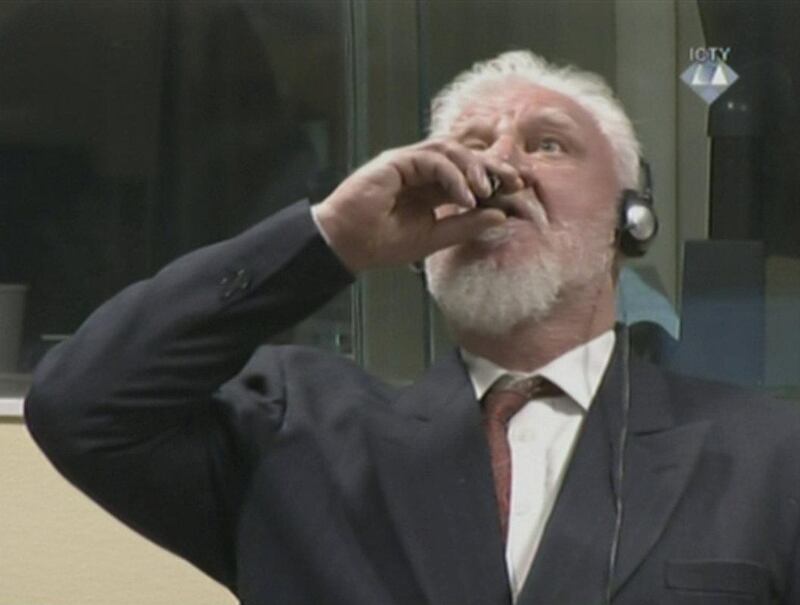Security is to be toughened up at the United Nations’ war crimes court in The Hague amid fears that more inmates facing trial there will follow the example of Slobodan Praljak, who dramatically committed suicide in the dock on Wednesday by poisoning himself on live television after hearing that his appeal against a 20-year sentence had failed.
On hearing the verdict that he would be sent to serve time for offences committed against Muslims during the Bosnian War, the 72-year-old, who was known as the ‘Moster of Mostar’, announced that “Slobodan Praljak is not a war criminal, I reject your judgment with contempt,” then drank from a bottle he had been holding in front of him during the sentencing.
After swaying and falling back into his seat, he then said “I have taken poison” – it was later discovered to be potassium cyanide – and members of the court were thrown into pandemonium. There had been no guard at either side of him to prevent him from swallowing the fast-acting poison, even had they noticed the bottle before he raised it to his lips.
The Observer newspaper reports that both the tribunal and Dutch police have opened investigations into the security breach which allowed Praljak to evade justice and which could inspire other inmates at the court to commit similar acts. The tribunal has asked Gambia’s chief justice Hassan Jallow to lead their investigation.
The newspaper notes that Praljak’s trial took place without the blue-uniformed guards in the dock beside defendants that is the usual routine in The Hague: two flanked the Bosnian Serb general Ratko Mladić last month when he was convicted of genocide for overseeing the Srebrenica massacre.
“There were normally two guards behind the accused … not this time,” an unnamed Croatian official told the newspaper. “The Croatian press says that perhaps the last day of the Tribunal contributed to the relaxing of rules.”
A parallel line of inquiry will be to discover how the poison even came to be in Praljak’s ; defendants are strip-searched and x-rayed upon entering and leaving the court complex.
It is not the first time that a Hague inmate has killed himself; two Serbian hanged themselves in cells of the court’s Scheveningen prison on the Dutch coast. Slobodan Milošević, Serbia’s former president, is alleged to have smuggled a drug into his cell that made his heart condition worse and ultimately killed him near the end of his three-year trial in 2006.







